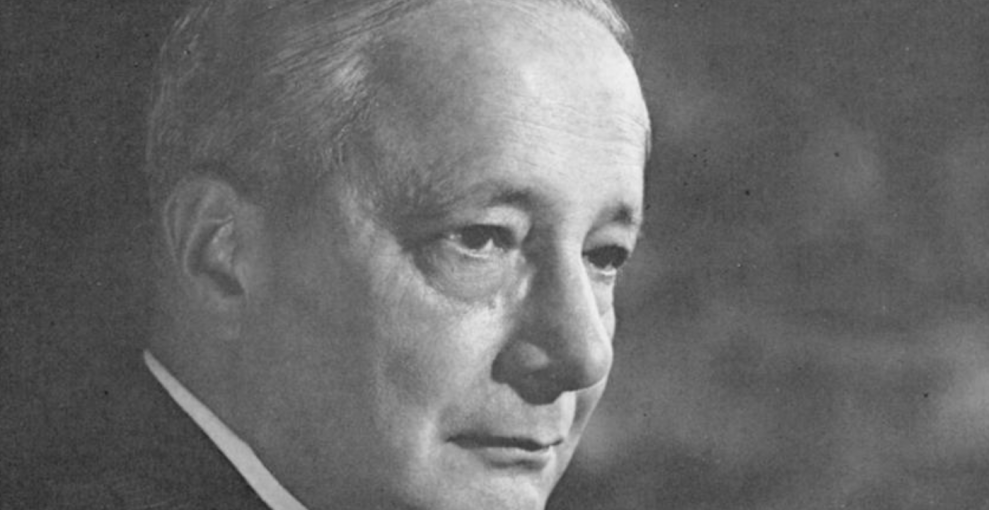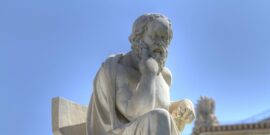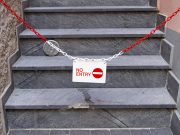If the liberal arts are indeed good for the soul, they should be taught to people of all ages.
Educating for Tacit Knowledge
Classical education is in full bloom. Inevitably, success comes with controversy. Critics of the classical curriculum note that it is content-heavy, with all students expected to learn a substantial amount of material irrespective of their background, interests, or life possibilities. Is that justifiable? It is a serious question, calling for a mature and compelling answer. Polymath Michael Polanyi supplies this with his distinctive epistemology of “tacit knowing.”
Polanyi was a world-class scientist who, in his 50s, turned to philosophy and made monumental contributions to both of those worlds. He was also a passionate defender of freedom who offers vitally important insight regarding education’s role in securing that freedom and sustaining the institutions through which it is expressed.
Polanyi was born in Budapest in 1891. While training to be a physician, he also studied physical chemistry. A professor sent one of Polanyi’s papers to Einstein, who judged it quite competent. With that encouragement, Polanyi emigrated to Berlin where he emerged as a central figure in experimental science. Two of his students at Manchester University received the Nobel Prize, as did his son. Polanyi himself authored more than 200 papers in science, but he then turned his attention to “social studies,” devoting the rest of his scholarly career to philosophy, particularly epistemology. He is best known for a theory of knowledge known variously as personal knowledge or “tacit knowing.”
Based on his intimate understanding of the foundations of science, Polanyi clarifies the necessary prerequisites for the cultivation and preservation of the principles that define “Western civilization.” These prerequisites are best understood as educational strategies that establish the important commitments that define the well-formed student. Polanyi’s views on “primary education” intersect remarkably with the thought of C. S. Lewis as we find it expressed in “The Abolition of Man.”
Polanyi’s epistemology of tacit knowing provides a compelling justification for a rich, mandated core curriculum. He can help classical schools at the broad level of purpose and rationale, while his thoughts on “the educated mind” can be useful in developing curriculum or content.
Polanyi elucidates Saint Augustine’s observation that in order to know, one must first believe. Knowing, says Polanyi, consists of understanding in terms of background beliefs. This grounding in belief is coincidental with acquiring a language, a process that begins in infancy and is later the primary focus of a properly conceived elementary school and K-12 school system. It is also a central aspect of what Polanyi means by “primary education.” Here again, Polanyi is informed by his deep familiarity with science. He asks, “What does the practice of science teach us about the essential educational groundwork for other institutions, including the civic order of a free society?”
On what we might call his “critical” side, Polanyi was reacting to several misunderstandings that characterize the modern mind. Probably the most influential of these is the doctrine of unrestricted doubt which maintains that the royal road to truth is to call everything into question and to accept nothing that is not irrefutably demonstrated by objective evidence—a position, rooted in Descartes, labeled “objectivism.”
For Polanyi, objectivism is a delusion spawned by a dangerous appetite. It seeks something impossible to attain, and Polanyi demonstrates that it was this attempt to achieve the impossible, fueled by a misguided and seldom acknowledged moral passion, that caused many of the horrors of the 20th century. Working in the philosophy of science, Polanyi argues that scientists are not in fact committed, as asserted by Karl Popper, to the falsification of their hypotheses, but rather to establishing that they are true. Finally, Polanyi, committed to a conception of an emergent meaningful reality, was adamantly opposed to the view, alarmingly popular in our time, that there is no reality or truth to be discovered, but only a variety of perspectives regarding what is real and true.
Polanyi emphasizes that “we know more than we can say.” Think for example of riding a bicycle. You know how to ride, but you cannot specify explicitly how it is that you do. Consider these other familiar phenomena: recognizing a face in a crowd, a scientist having an insight, and someone’s response to a symphony, poem, or painting. In each of these, according to Polanyi, there is a triad of 1) tacit clues being integrated by 2) an intelligent center (a person) into 3) a focal result. Knowing, in Polyani’s view, consists of precisely this.
For example, when you recognize the face of a friend in a crowd, you’re integrating forehead, nose, ears, and mouth into a focal result, which is the face. But you’re not focally aware of the things you’re integrating. Rather, they are tacit, and knowing is an integration of these clues. Still, this is a skillful achievement, and because it’s skillful, the process can be developed and refined. This is where education becomes important.
One of the purposes of the schools according to Polanyi is to teach people how better to integrate clues. But, of course, you can’t integrate clues unless you have them. Therefore, another important purpose of schooling is to provide the clues, and that’s where the rich content of the classical education curriculum comes in. The classical curriculum provides a background, a store of tacit clues, that can be integrated by the individual throughout life. A primary consequence of this endowment is the propensity later life to see (i.e., understand) in terms of these clues.
The well-educated person engages the world while seeing in terms of, say, scientific concepts, that he or she learned in high school, or the visions of human possibilities that he or she learned in English classes. The world we understand, including how we view ourselves, is a product of the integration of a tacit store of concepts, categories, and images.
For Polanyi, the central aim of education is to preserve what we respect—the most important aspect of which is a kind of person. This preservation is achieved primarily through the cultivation of the individual by way of initiation into a tradition. By successfully imparting the subject matter of the classical education curriculum—science, literature, the arts, foreign language, history, civics, etc.—we try to ensure that the same sort of people who are teaching the young today will be teaching the young in the future. In other words, we are keeping a chain intact.
We manifest a commitment to the things we esteem by doing our best to ensure that those who we teach will be just as committed to teaching their own young. At heart, this is an enabling process. Classical educators, in particular, should be comfortable with this term. They are equipping people to have an effective life. Through a grounding in a tradition and the disciplines, we enable them to possess the wherewithal to understand the world and themselves more clearly. And one of the best ways that we enable people is by bringing them into contact with exemplars—real and fictional, good as well as evil. Unfortunately, such an emphasis is increasingly rare in contemporary schooling. Happily, it is at the very heart of the classical education movement which is rising across the country.
Polanyi’s legacy on K-12 education is primarily felt through the influence of Harry Broudy, the preeminent American philosopher of education during the second half of the 20th century. Readers interested in pursuing Broudy’s use of Polanyi should study “The Uses of Schooling.” Broudy concretely applies Polanyi’s epistemology to K-12 education. The classical education movement is a perfect place for Polanyi’s ideas to be understood and implemented. This is because classical education prioritizes rich content and tradition, both of which are vital to Polanyi’s understanding not only of what education should be doing for students, but also of what is necessary to preserve our civilization as a whole. For an informative guide for the blossoming classical education movement, it’s difficult to imagine a more apt, penetrating, and fruitful figure than Michael Polanyi.



